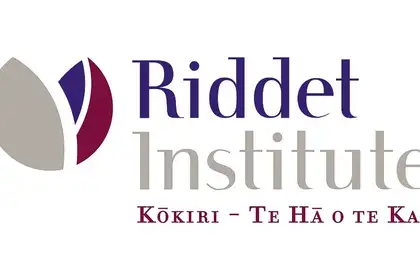
The Riddet Institute is hosted by Massey University and has been a CoRE since 2008.
The Riddet Institute, hosted by Massey University, has been re-selected as a New Zealand Centre of Research Excellence (CoRE) by the Tertiary Education Commission (TEC) and awarded $38.25 million over the seven and a half years. The Riddet Institute has been a CoRE since 2008 and has established a global reputation for its high-quality research in the field of food science and nutrition, as well as providing vital science capability for the New Zealand food sector. In particular, the Institute is a global leader in the fundamental understanding of the structure of food and its effect on digestion and health.
The Riddet Institute’s new CoRE research programme is entitled “Future Foods in Harmony with Nature” and will help address one of the great contemporary challenges facing humanity – a sustainable and nutritious food supply. The food sector, in New Zealand and globally, is undergoing a significant transformation, with the need for more and healthier food, less food wastage and sustainable low emission, resource-efficient production. The Riddet Institute will support this transformation through its world-leading science and in line with the principles of Te Tiriti o Waitangi and Māori concepts such as Te Taiao. Guided by its Māori partners and stakeholders, the Institute will also facilitate indigenous innovation by supporting the development and protection of Mātauranga Māori, for the benefit of Māori communities and Aotearoa as a whole.

Professor Harjinder Singh
The new CoRE research programme will include not only the food materials science, nutrition and health that has been a Riddet Institute strength since 2008, but several new areas of research. The Institute will explore new plant and combinatorial proteins and explore new transformative technologies, the fast-moving areas of food innovation that have the potential to disrupt existing food production systems and markets. The new programme will bring together a national cohort of scientists and the latest advances in disciplines such as bioengineering, biomedical science, complex systems science and molecular biology to generate new scientific insights. The programme will lead to the development of foods that are sustainable, support optimal nutrition, human health and wellbeing, and appeal to the preferences of tomorrow’s global consumers.
Riddet Institute Director, Distinguished Professor Harjinder Singh is proud to lead the Institute into the next phase as a Centre of Research Excellence. “The key strength of the Riddet Institute is its people. We bring together the best scientists across Aotearoa, not just in food science but from many other supporting disciplines, to work on complex problems in food. The recent pandemic has highlighted our nation’s strengths in the agri-food industries and, as a CoRE, we are delighted to continue our contribution to technological and scientific innovation and development of a highly-skilled workforce”, he says. “I am excited to see the new research programme take shape and to continue our collaborations with industry, iwi and Māori enterprises. It is a privilege to lead the Institute into its next phase”.
Massey University Vice-Chancellor Professor Jan Thomas says it is fantastic to see the world class research that the Riddet Institute delivers and co-ordinates, recognised by this funding.
“The globe is currently facing huge challenges in regards to food production, security and climate and this funding is going to allow for the progressive science research that is underway to continue and for it to continue in a way that will actively benefit Aotearoa and the rest of the world.”
“Here at Massey we strive to be a world leader in food science, and we are proud to host the Riddet Institute to deepen strategic research collaborations and relationships both nationally and internationally.”
“This funding will enable the Institute to continue to invest in our students and the next generation of researchers by giving them the opportunity to be innovative and creative with their research through the resources, teaching staff and facilities that are available.”
The TEC CoRE funding, established in 2001, is determined through a contestable process, to encourage the development of excellent tertiary education-based collaborative research that is strategically focused and creates significant knowledge transfer activities. Centres of Research Excellence (CoREs) are inter-organisational networks, with researchers working together on commonly agreed work programmes. They also build research capacity and capabilities through post-graduate programmes and the training of new researchers.
The Riddet Institute has five partner organisations; Massey University (host), AgResearch, Plant & Food Research, The University of Auckland and the University of Otago, and a number of collaborators (Auckland University of Technology, Lincoln University, University of Canterbury, University of Waikato and Victoria University Wellington). Scientists within these New Zealand organisations, specialists in food science as well as other supporting disciplines, are brought together within in the Institute. The Institute will continue in its role with the partner universities, in training highly skilled graduates that move into careers in industry, research institutes and universities. This transfer of skills and knowledge will strengthen the nation’s research capacity in food.